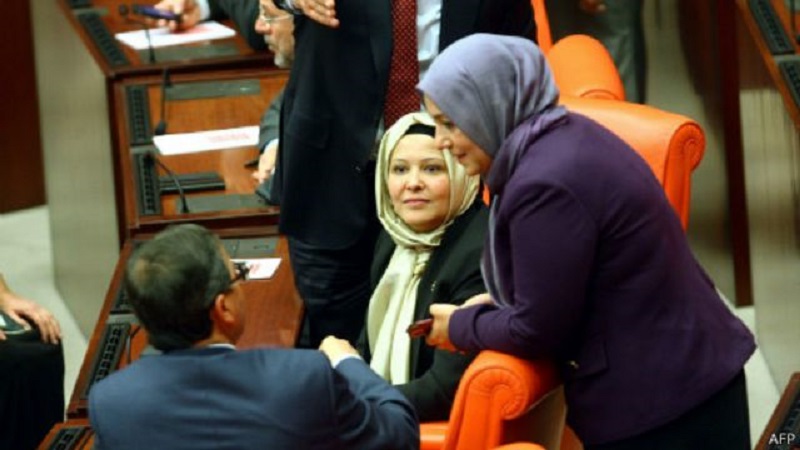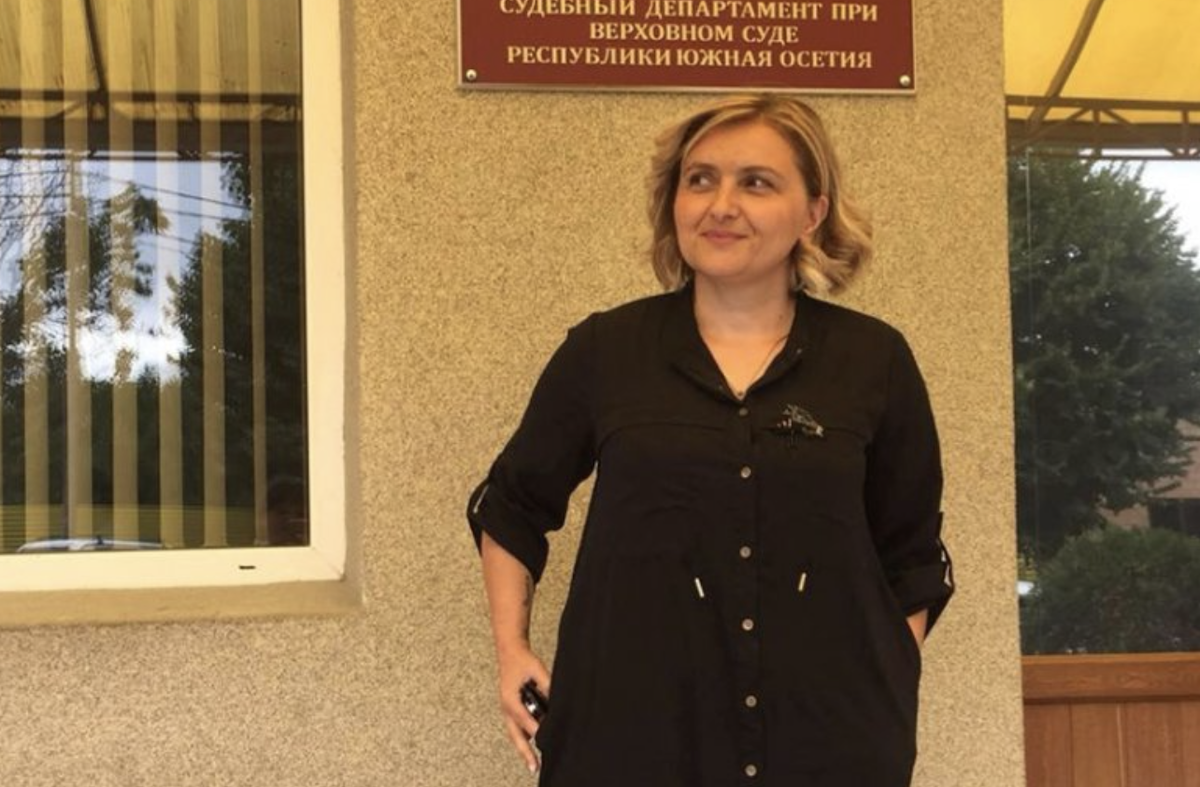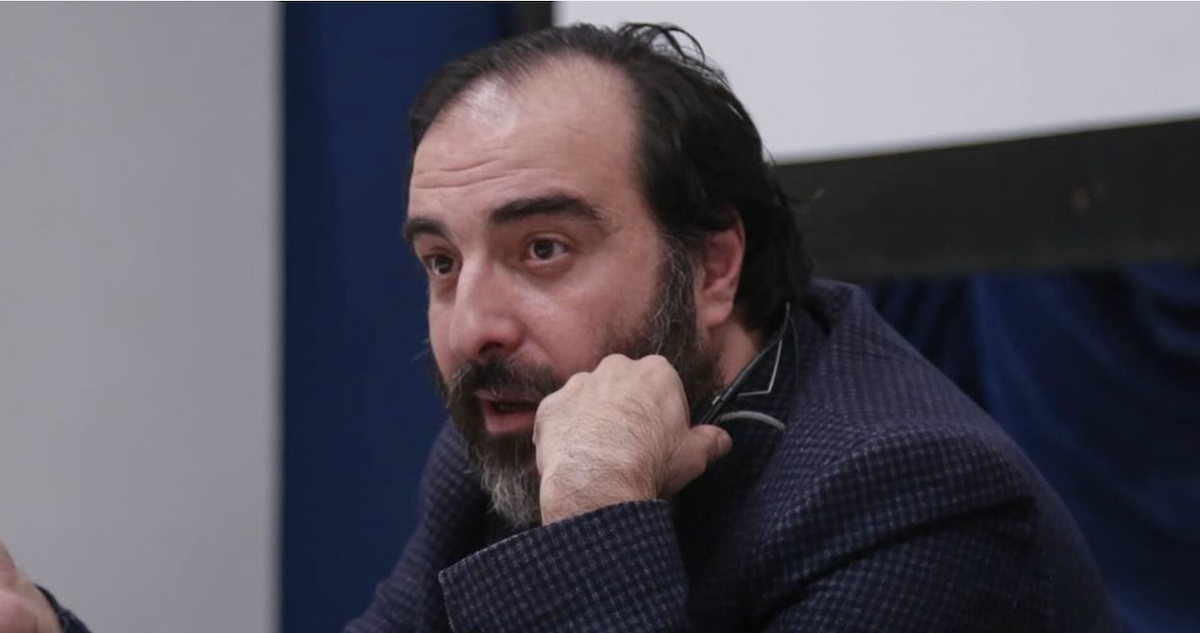Turkey prepares to enshrine the family as a "union of a man and a woman" in constitution
Proposed changes to Turkish constitution
Discussions began on changes to the country’s constitution six months before the presidential and parliamentary elections in Turkey. The most important changes to the fundamental law of the country are articles on the freedom to wear the hijab and the consolidation of the concept of the family as an exclusive union of a man and a woman.
- Medical care in Turkey
- “Turkey will not improve relations with Armenia at the expense of Azerbaijan’s interests.” Opinion
- What did US and Russian intelligence services discuss in Ankara? Overview from Turkey
The Justice and Development Party (AKP), which has ruled Turkey since 2002, plans to address the issue of freedom to wear the hijab through changes to the constitution to guarantee this right in the event of any problems in the future.
Hijab problem
Starting this year in Turkey the use of religious symbols, including the wearing of hijab by employees of state structures, will be prohibited. Tension between the secular and religious segments of society erupted after the military coup in 1980, and in 1997, when the Turkish army command dismissed former Prime Minister Najmeddin Erbakan.
Students who wore hijabs were expelled from universities. The story of a student who was declared the champion of the country according to the results of final exams and came to the graduation ceremony in a hijab caused a scandal, and another student was named instead — because of her secular dress.
In 1999, the first deputy in the history of Turkey to wear a hijab, Merve Kavakci, came to a meeting of the country’s parliament. The former Prime Minister, head of the Democratic Left Party (DSP) Bülent Ecevit, forced her to leave the room, adding: “We do not interfere with the dress of women in their private lives, but this is not your private life, this is the highest office of the state, and you may not challenge the state.”

After the Justice and Development Party (AKP), known for its sympathy toward the religious, came to power in the country in 2002, these problems were resolved, despite the protests of the army and society.
According to a survey conducted by the research company MetroPOLL in October 2022, 35% of the entire population of Turkey, and 63% of the electorate of the ruling party, believe that the new government will ban the wearing of the hijab.
An unexpected proposal from the opposition
In the midst of these discussions, Kemal Kılıçdaroğlu, leader of the opposition Republican People’s Party (CHP), approached parliamentarians with a proposal to pass an appropriate law on the freedom to wear the hijab so that this does not raise questions in the future.
This proposal caused a mixed reaction within the opposition itself. The majority thought this would lower the ratings of the CHP, because the issue of the hijab is considered Erdogan’s “monopoly”. According to opposition experts, there are many other more important problems in the country, such as inflation, corruption, and so on.
CHP ally, the İYİ (Good Party), represented by its leader Meral Akşener, also criticized Kılıçdaroğlu “There is no need for this discussion at this time.”
But Recep Tayyip Erdogan said the issue of wearing a hijab requires a more thorough approach, and suggested that the article be included in the country’s constitution.
About the “traditional family system”
Proposals for changes to the constitution of the country affect not only dress. Among the proposals is the position of the state to the institution of the family. The ruling party proposes to write into the Turkish constitution a clause recognizing the family as exclusively “the union of a man and a woman.” According to the deputies from the AKP, this will prevent homosexual marriages in the country.
President Erdogan said that if the proposed changes to the constitution are not supported by two-thirds of the deputies of parliament (400 out of 600 deputies), they will have to go to a national referendum. This referendum could take place simultaneously with the presidential and parliamentary elections in June 2023.
According to the current constitution of Turkey, amendments to the basic law can be made by the votes of two-thirds of deputies. If it is not possible to collect these votes, then 60% of the deputies, having voted “for”, can put these issues to a referendum.
No conflicting opinions
According to political observers, Erdogan’s main goal in putting the hijab and conservative family structure on the agenda is to divert the attention of the wavering electorate from economic problems and prevent them from voting against the current government.
Analyst Kemal Büyüküksel says opposition leader Kılıçdaroğlu’s proposal to bring the hijab issue to parliament was a huge mistake. According to him, the proposed changes to the constitution are contrary to the principle of equality of citizens, and in the future may mean an ideological capitulation of the opposition to the ruling party.
For his part, Kılıçdaroğlu noted that his party would support the proposed amendments to the constitution, but he did not know anything about the proposal regarding the institution of the family.
Although the leader of the İYİ party Akşener first criticized Kılıçdaroğlu for his opinion on introducing the issue of wearing the hijab to the parliament, the press secretary of the İYİ, Kurshad Zorlu, said that in principle their party is not against changes to the basic law.
Meanwhile, the other four opposition parties that make up the Table of Six (an unofficial coalition of the main opposition parties) have also pledged support for the change.
Legal expert and lawyer Eray Karinca noted that according to the current laws, homosexual marriage in Turkey is impossible even now. In his opinion, the ruling party is trying to consolidate its electorate by bringing populist topics up for public discussion.
President Erdogan also expressed confidence that the discussion of the issue of the traditional foundations of the family in Turkey will not cause any problems in parliament, since “none of the parties will oppose the Turkish family system.”
The draft law on amendments to the Turkish constitution has been presented to the speaker of the country’s parliament. The bill was signed by 336 deputies. The document is expected to be voted on in the coming days.




















